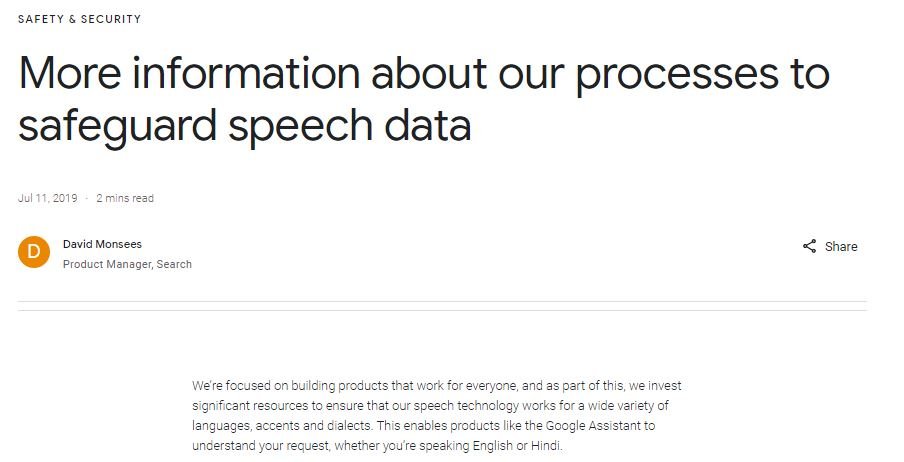Voice assistants are a very controversial technological implementation, as some believe they are too intrusive with users’ privacy and do not provide significantly useful features compared to using a conventional computer or smartphone. Its use becomes increasingly questionable considering the constant reports of information collection. The most recent of these reports points out that Google Assistant technology can listen to users’ conversations even without being invoked.
The company had already admitted that it records some of the users’ conversations, though its reports claimed this was impossible if the user didn’t say “OK Google” aloud. However, this new report ensures that it is not necessary for the user to activate the assistant with the renowned voice command.

According to Android Authority researchers, a Google representative admitted that its virtual assistant records audio even when this tool is not used, even recognizing that employees have access to this information. However, Google clarified that this has not been done inadvertently, ensuring that its staff is not listening to users’ conversations. In addition, it was established that Google staff only have access to limited parts of the audio.
On the other hand, Google CEO Sundar Pichai spoke out about these allegations, stating that employees access only random samples of this information for the purpose of maintaining and improving the machine learning system. However, Pichai did not provide information on the methods used by Google to establish what information employees can access.
This isn’t the only security report related to Google Assistant. In July 2019, it was reported that third parties exposed around a thousand records extracted from the virtual assistant, although Google has always claimed that such incidents have nothing to do with its security practices. Either way, cybersecurity experts recommend using these devices in a limited way, as their excessive use reveals too much information about users.
To learn more about information security risks, malware variants, vulnerabilities and information technologies, feel free to access the International Institute of Cyber Security (IICS) websites.

He is a well-known expert in mobile security and malware analysis. He studied Computer Science at NYU and started working as a cyber security analyst in 2003. He is actively working as an anti-malware expert. He also worked for security companies like Kaspersky Lab. His everyday job includes researching about new malware and cyber security incidents. Also he has deep level of knowledge in mobile security and mobile vulnerabilities.











